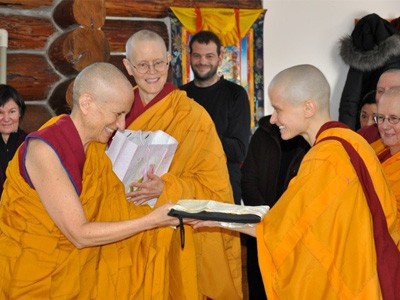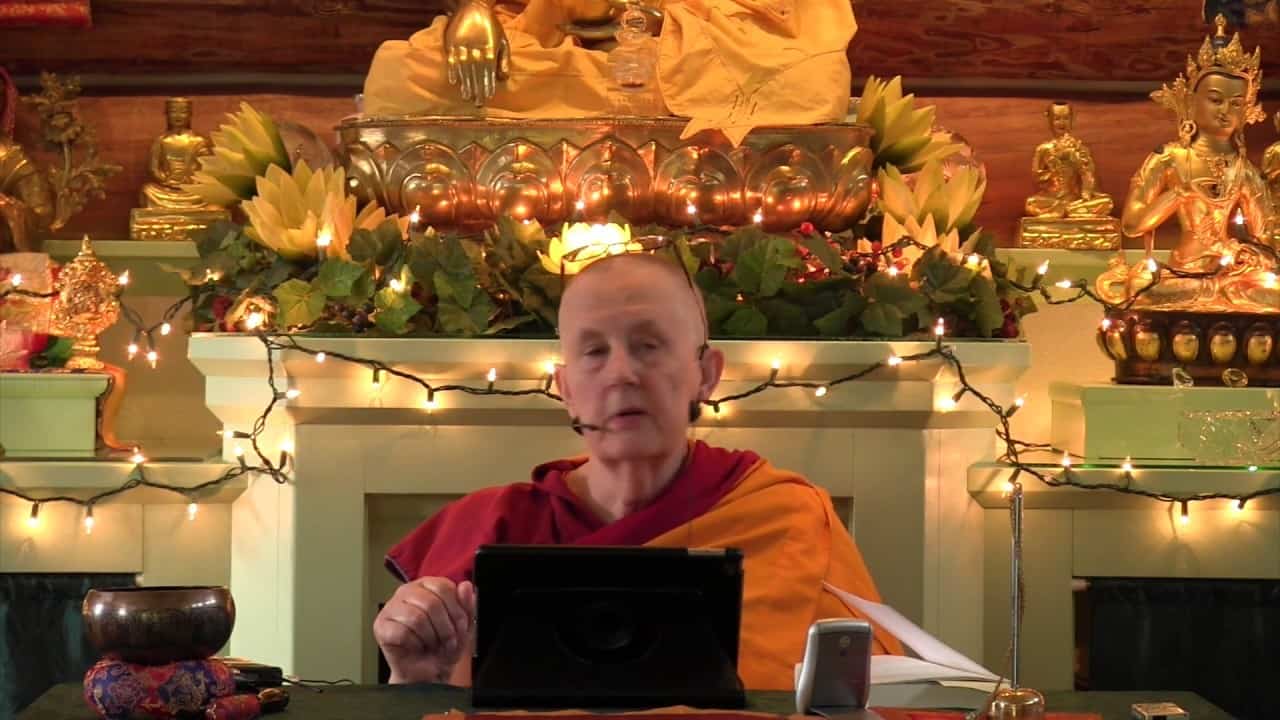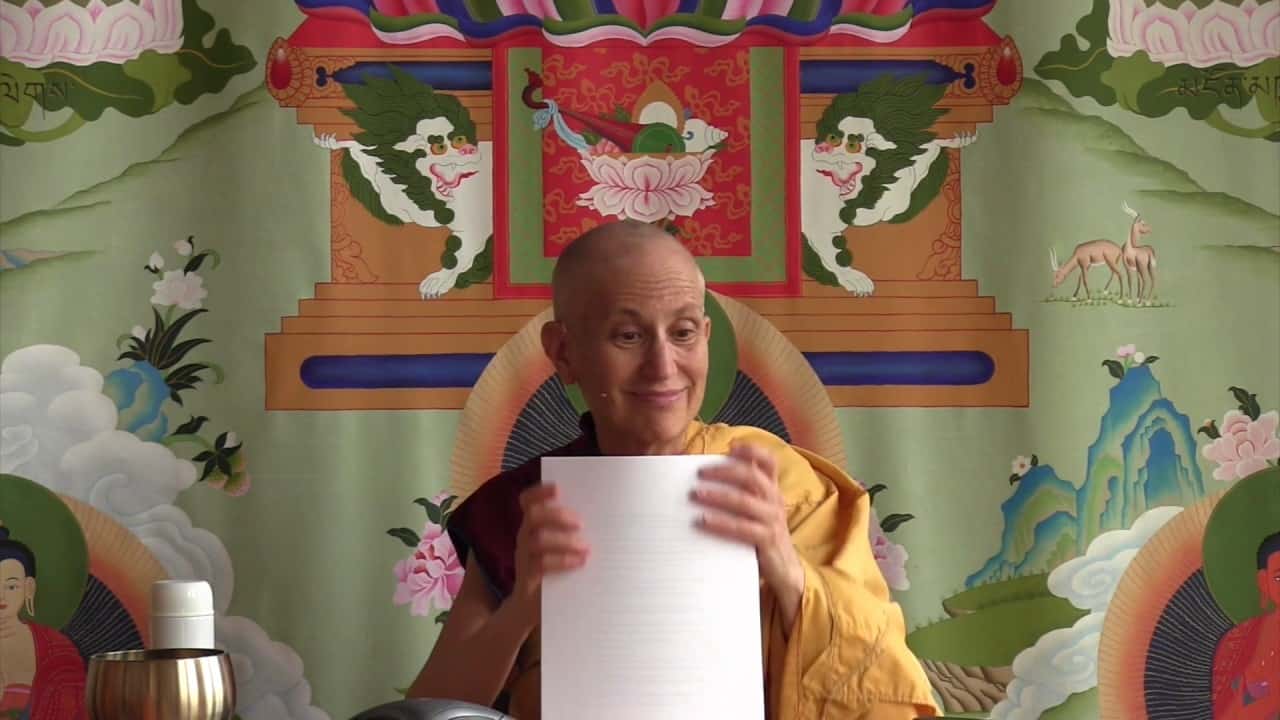The benefits of living in a monastic community

Venerable Jampa received her anagarika vows from Venerable Thubten Chodron in 2010 and has lived at Sravasti Abbey since 2011. Here she reflects on the benefits of living in a monastic community.
-
- You receive a lot of support, even if sometimes you don’t feel you need it. In the end, you realize it’s beneficial for you. For example, somebody might give a suggestion on how to make something better. You might think at first, “This person is criticizing me.” Later, you might realize that her idea is quite good and that it will improve your practice.
- You have the support of your preceptor who is guiding you in the Vinaya. This is very important. I have learned so much just by observing how Venerable Chodron is guiding us and leading this community. She is an excellent Vinaya holder to learn from.
- Living in a monastic community enables you to uphold the Vinaya and the Dharma. For example, doing the posadha makes it possible for you to review the precepts and to amend your negative deeds, with sangha members listening to you and supporting you.
- When doing the pravarana you can request feedback and so have the opportunity to improve your practice and protect your precepts. There are more rituals that bring benefit to the individual and the sangha so they can practice the Dharma.
- Ethical conduct is the foundation for concentration and concentration is the foundation for wisdom. If we live alone, it’s possible to slip into some of our old habits, as nobody is watching over us. Also, we don’t have role models that show us how to live properly, how to practice the Dharma. This can become a hindrance on the path.
- In community we have the collective power to create a conducive environment for studying and practicing the Dharma. Alone it’s very difficult to create such places, to have the right living conditions that will support your precepts, your practice, and your study of the Dharma.
- Living in community protects you as you accumulate merit and purify negative deeds because you are serving powerful objects of respect such as your teacher, the abbess, the bhiksunis and the Dharma. You are less inclined to follow egoistical trips that might propel you to do negative deeds.
- The focus of your practice is not only on yourself. Just living in community motivates you to think of others. Then, even if your motivation or ability to think help others is weak, you will start to see the benefits of helping others. You will learn to see the necessity and the beauty of it and you will increase your ability and willingness to help over time. That will benefit your practice as you purify and gain merit in this process.
- All members work together, so as a community we are stronger in benefiting others by offering teachings, retreats, and counseling. In a community, there are different skills that are beneficial to promote the Dharma, to create a supportive environment, to engage in social activities, to train new monastics, and so on. One person can often only focus on one thing at a time, but a community can multitask.
- A community of monastics can leave a huge impression on society. A lone monastic and his or her practices of the Buddha’s teachings might not get recognized. However, a community of monastics that lives, studies, practices, and promotes the Dharma together can have a huge impact on the society. They are strong role models. As Venerable Chodron has said: When we hold our ethical values closely, we are the “conscience of society.”
Bhikshuni Thubten Jampa
Bhikshuni Thubten Jampa is from Hamburg, Germany. She took refuge in 2001. Bhikshuni Jampa studied politics and sociology for 5 years at the Humboldt-University in Berlin and received her master in Social Science in 2004. Afterwards she worked for the International Campaign for Tibet (ICT) in Berlin till 2007 and for the Tibetan Center Hamburg from 2007-2011. She completed monastic training at Sravasti Abbey, USA from 2011-2022. Today she lives in Hamburg again as a fully ordained nun (Bhikshuni) and studies full-time at the Dharma College at the Tibetan Centre. She occasionally offers lectures, retreats, regular meditations and a study group at the Buddhist Society Hamburg and if requested at the Tibetan Centre, among other places. Bhikshuni Thubten Jampa is also involved in the Hamburg Buddhist Society (BGH).


